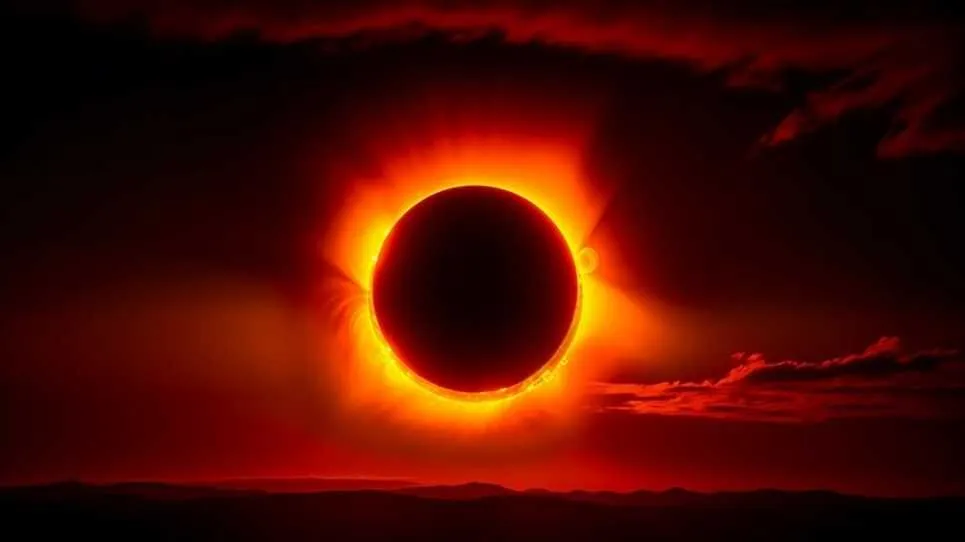A once-in-a-lifetime opportunity to witness a cosmic event

A solar eclipse is a natural phenomenon that occurs when the moon passes between the sun and the Earth. The moon’s shadow blocks out the sun’s light, creating a dramatic effect in the sky. Solar eclipses are a rare and awe-inspiring sight, and they can be a truly unforgettable experience.
What is a solar eclipse?
A solar eclipse occurs when the moon passes between the sun and the Earth. The moon’s orbit around the Earth is slightly tilted, so it only passes directly in front of the sun during a new moon. When this happens, the moon’s shadow falls on the Earth, creating a solar eclipse.
Why are solar eclipses important?
Solar eclipses are important because they provide us with a unique opportunity to learn about the sun. When the sun is blocked out, we can see the sun’s corona, which is a layer of plasma that surrounds the sun. The corona is normally too faint to see with the naked eye, but it can be seen during a solar eclipse.
When is the next solar eclipse?
The next solar eclipse will occur on April 8, 2024. This eclipse will be a total solar eclipse, which means that the moon will completely block out the sun for a period of time. The path of totality will cross the United States, from Mexico to Canada.
Where can I see the next solar eclipse?
The path of totality for the April 8, 2024, solar eclipse will cross the United States from Mexico to Canada. The eclipse will be visible in the following states:
- Mexico: Baja California Sur, Sonora, Chihuahua, Coahuila, Nuevo León, Tamaulipas, San Luis Potosí, Querétaro, Guanajuato, Michoacán, Aguascalientes, Jalisco, Colima, Nayarit
- United States: Texas, Oklahoma, Arkansas, Louisiana, Mississippi, Alabama, Tennessee, Georgia, North Carolina, South Carolina, Virginia, West Virginia, Maryland, Delaware, Pennsylvania, New Jersey, New York, Connecticut, Rhode Island, Massachusetts, Vermont, New Hampshire, Maine
- Canada: Newfoundland and Labrador, Quebec, Ontario, Manitoba, Saskatchewan, Alberta, British Columbia
How can I safely view a solar eclipse?
It is never safe to look directly at the sun, even during a solar eclipse. To safely view a solar eclipse, you must use special eclipse glasses or a solar filter. Eclipse glasses or filters can be purchased at most astronomy stores or online.
Conclusion:
Solar eclipses are a rare and awe-inspiring sight. If you have the opportunity to see a solar eclipse, be sure to do your research and take the necessary precautions to view it safely.
Recommendations:
- The American Astronomical Society (AAS) has a website with information on how to safely view a solar eclipse
- NASA’s Solar Eclipse website also has information on how to safely view a solar eclipse
Find this and many more knowledge guides on Monkicon